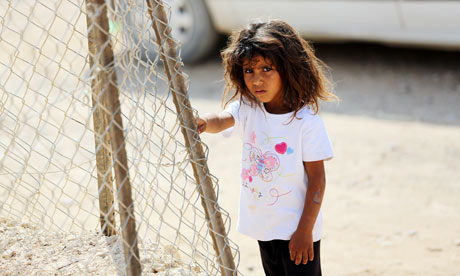
Civil society, government leaders, healthcare professionals, policymakers, two former US presidents' daughters, two princesses and at least one supermodel will meet in Malaysia this week for a conference to share ideas and sharpen messages around the rights and empowerment of women and girls to influence the future development agenda.
The third Women Deliver global conference, held every three years, is timely as the international community looks ahead to what will come after the millennium development goals when they expire in 2015.
The three-day event, beginning on Tuesday in Kuala Lumpur, will focus on women and girls' health, specifically around maternal and reproductive healthcare and rights. Topics discussed will cover a wide spectrum, from preventing early or forced marriage, and sex education for young people to family planning, abortion and universal healthcare.
"As this moment, the world is focusing on the post-2015 agenda," said Nyaradzayi Gumbonzvanda, general secretary of the World YWCA, who will be attending her second Women Deliver conference. "This is a space for motivating and sharing experiences and improving on our work. It's an opportunity for us to continue to build stronger policy frameworks to give clear messages and recommendations, and key issues that we want governments or multinationals to take into account for policy and programmes."
This year's conference has attracted high-profile speakers, including the women and child rights campaigner and former Mozambique education minister Graca Machel; co-founder of the Bill and Melinda Gates Foundation Melinda Gates, and professor of global health at Sweden's Karolinska Institute and statistician Hans Rosling. The former president of Finland, Tarja Halonen, and the president of the Global Fund for Women, Musimbi Kanyoro, are scheduled to attend, as well as Helen Clark, the head of the UN development programme, and Lakshmi Puri, acting head of UN Women.
Chelsea Clinton, who is on the board of the Clinton Foundation, and Barbara Bush, chief executive of Global Health Corps, have seats on the plenary panels.
"This rolling stone has gathered a lot of moss," said Jill Sheffield, the president of Women Deliver, who added that, with such a high-profile event, she's only sorry the UN high-level panel is not publishing its report on the future of development at the conference.
Events such as Women Deliver are important because global progress on reducing maternal deaths and improving access to healthcare and family planning is uneven, says Sheffield. Big-name panelists bring greater attention to the issues and could galvanise those in power into action.
"Parts of the world are not going to make anywhere near MDG five [on reducing maternal health]," she said. "Every three years, we try to renew energy levels and refocus how people think about [these issues], rethink the direction we're moving. This is not about recipes, it's about what things are clearly working, and we need to share that, and what is not working."
Asked if she was expecting to see the type of opposition witnessed at the UN Commission on the Status of Women in March, when conservative member states and civil society groups sought to derail an agreement on ending violence against women and girls by objecting to mentions of reproductive rights and sex education, Sheffield said: "We expect there will be people with differing points of view, and the great thing about Women Deliver is different perspectives … but we don't have difficulty in talking about what we have in common, which is saving people's lives and improving people's lives."
Gumbonzvanda, who wants to see a clear focus on the rights and needs of girls and young women in any future set of development goals, said some of the issues under discussion in Kuala Lumpur will be "sensitive", but added: "Change doesn't happen unless we have boldness and courage in this safe space to discuss difficult issues. We need to continue to reject abuses of culture and faith."
President Halonen said women's rights are human rights and need to be protected. "Everyone should have the right to decide their own identify. [To find] the best way to do this, we need information, education and then access to services, in order to make decisions. We are not telling people what they should do."

